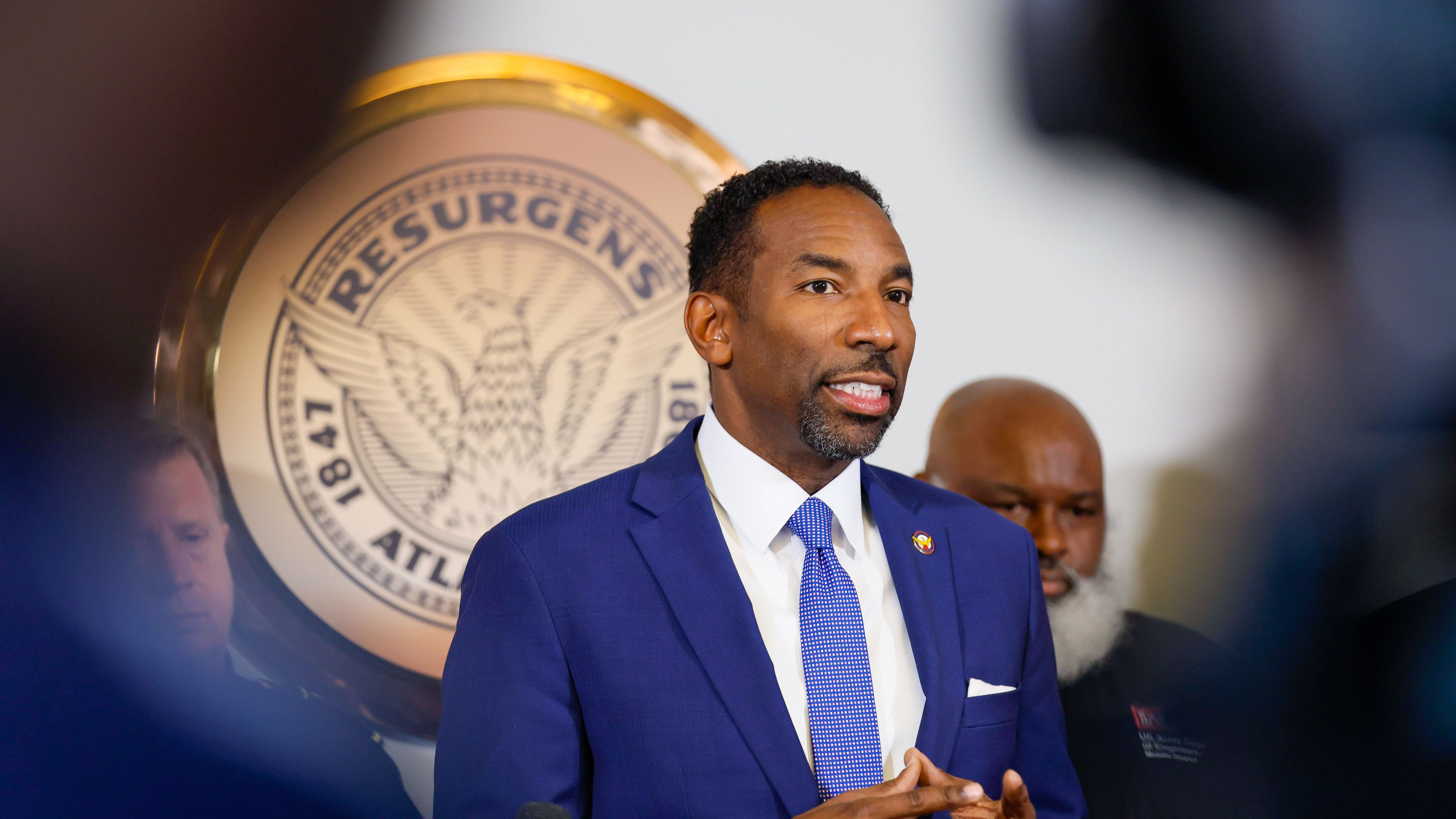Mayor Dickens says water crisis a ‘wake-up call’

Atlanta residents woke up Wednesday morning to the good news that repairs were completed on all the severe water breaks that took place over the weekend. The announcement marked an end to five days of uncertainty over the state of the city’s system.
Atlanta Mayor Andre Dickens called the crisis event a “wake-up call” to officials to be more proactive about monitoring the city’s aging water infrastructure that dates back to 1875.
“The past few days were a call to action for all of us,” he said. “Every city in America has aging infrastructure, and we will rise to meet this moment to ensure that residents and businesses alike have reliable access to water.”
His comments came during an early news conference at City Hall, where the mayor and department heads celebrated the final repairs made to the water break at 11th and West Peachtree Street in Midtown.
Dickens and watershed leaders said residents have no reason to be concerned that the severe water issues will continue.
“This has been decades in the making,” the mayor said. “And we just happen to be at this time where this incident occurred.”
But many Atlanta residents still have wavering faith in the city after a complete communication breakdown in the early days of the crisis had many wondering if the city was responding at all.
It was hours after the first break on Friday at Joseph E. Boone Boulevard before Atlantans were notified about the boil water advisory that was put in place. The mayor didn’t make his first public appearance until after 2 p.m. on Saturday, nearly 24 hours after widespread outages began plaguing the city.
The mayor — who was at a campaign fundraiser in Memphis as the problems unfolded Friday evening — acknowledged the lack of information and inconsistency of messaging being distributed to residents going into the weekend.
“I wish we had done a better job of communicating,” Dickens said again on Wednesday. “We learned that and we won’t learn it again.”
Even City Council members were among those expressing frustration with the city’s bungled communications as they were fielding frantic calls from constituents desperate for updates.
Although officials have said that, at this point, there’s no reason to believe the multiple breaks were related, the ruptures were far from routine. Workers scrambled to make repairs and repressurize the system to see if the fixes would hold. A crucial part to stop the geyser bursting from the street in Midtown had to be rushed from Alabama.
At City Council on Monday, Dickens announced that the U.S. Army Corps of Engineers is on its way to evaluate the city’s infrastructure vulnerabilities. On Wednesday, the mayor added that the Federal Emergency Management Agency is also coming to Atlanta to help with “resiliency planning.”
“I know that we’ve got to go at this proactively to start moving in the right direction to replace as much of the broken or older infrastructure that we have,” he said.

The city’s water and sewer system woes go back decades and have spanned across many mayoral administrations. So much so that since 2004, residents have voted to renew the long-standing penny sales tax for water and sewer projects.
But despite Atlanta voters backing the tax again in May, Dickens said the fund is far from enough to fix all of the infrastructure problems.
“I will be asking the feds for more money — lots more money,” he said. “That’s going to be a number that’s in the billions. It’s not going to be a small number.”
“But today, showing that there’s water running and that we’re all together working on this should give some confidence” to residents, Dickens said.
Watershed Commissioner Al Wiggins said Wednesday that next week the city is launching a pilot program throughout the Midtown neighborhoods to install small devices on the city’s water valves that will detect leaks and notify officials of their severity.
“This is one step of many that we’re taking to prevent any future occurrences,” Wiggins said.



